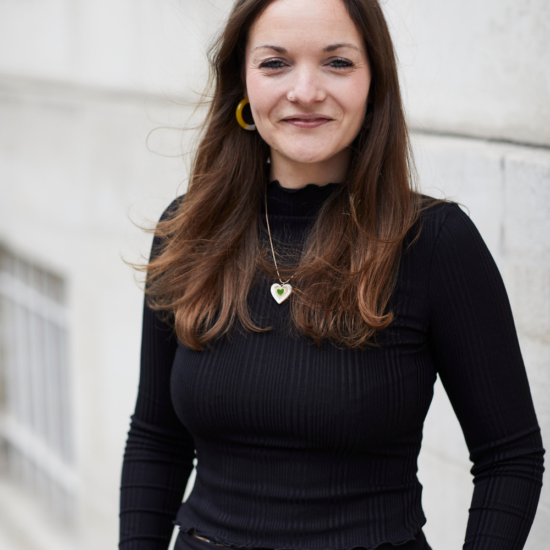Empower, include and collaborate: learning from Phase 2 of the Place-Based Social Action programme
Volunteers’ Week offers a great chance to share what we’ve learnt about supporting community social action in phase 2 of the Place Based Social Action programme.

Place Based Social Action (PBSA) is funded by the Department for Digital, Culture, Media and Sport (DCMS) and The National Lottery Community Fund. It aims to support communities to flourish by ‘building demand for social action that delivers the change people want to see in their area’. PBSA describes social action as:
Social action is about people coming together to help improve their lives and solve the problems that are important in their communities. It involves people giving their time and other resources for the common good. This can be in a range of forms, from volunteering and community-owned services to simple neighbourly acts.
About PBSA
Running from 2017 to 2024, PBSA provides a £4.5m investment for ten local partnerships to develop social action approaches. Funding is available for a wide range of activities including staff salaries, training, volunteer expenses, management costs, premises costs, monitoring and evaluation and overheads. Support contractors led by Locality will help to build social action capacity in places.
The overall aims of the PBSA Programme are to:
- Support local communities, public sector organisations, service providers, civil society organisations and businesses to work together to address local priorities
- Increase the capability and ability of local people and organisations to take action on the issues that matter to them
- Encourage new ways of working, so that the people who live and work in an area have more meaningful influence and ownership over local services
Renaisi is PBSA’s learning partner helping to measure the progress of the programme and build the ten partnership’s evaluation skills. The phase 2 report is accompanied by a video shot by Renaisi’s video ethnography partner, Close-Up Research & Film..
What have we learnt about helping social action to thrive?
After the amazing community response to the COVID-19 crisis many organisations, including the PBSA partnerships, need to re-think their offers to retain the volunteers that were mobilised in 2020.
The PBSA programme represents a significant investment in building the capacity of people and places to engage in social action long term and the learning from phase 2 identifies three approaches, which can support social action to thrive and help to engage and empower volunteers:
1. Community engagement
Listen to the community through methods like open space events, community consultation, listening exercises, and Community Organising (an approach that brings community together by training people to reach out, listen, connect and motivate others to take action around common concerns). This is enabling partnerships to:
- develop an understanding of what people want and need;
- gives people opportunities to share and develop ideas;
- help partnerships to design systems, approaches and activities that will motivate people to get involved in the future.
The Halifax partnership used trained ‘community organisers’ to deliver food parcels during lockdown, so that they could continue to connect with the community and understand new and critical challenges faced by local people. They used the findings from community organising to get people involved in starting their own initiatives such as a community garden.
2. Developing and empowering people
Understand people’s motivations for getting involved with social action and build on them, by providing structures and support to develop skills. This includes being flexible, developing strong and trusted relationships which bolster people’s confidence, providing advice and guidance, and equipping people with new skills.
Examples include multiple instances of partnerships supporting residents to deliver small activities for community wellbeing, including:
- a growing garden in Halifax;
- ‘Quay notes’ ukulele club which started in a community pub in Sefton;
- an interactive online Christmas calendar for people in care homes in Colchester, which included a murder mystery radio play produced and performed by a local community theatre group and seated exercises delivered by a personal trainer and games of Boccia (seated bowls).
Some of the partnerships have offered training courses to develop the skills of people in the community and inspire them to develop solutions to local problems. In Hartlepool and Coventry, the partnerships have run social action leadership courses. The ‘Change Maker University’ in Coventry has engaged seven local residents in modules that ‘intentionally build relationships, start movements and take action. The[A1] partnership reports that participants have been able to use newly developed listening skills to build deeper relationships in their service delivery roles.

Renaisi’s team has been helping the 10 partnerships to build their evaluation skills and a consortium led by Locality has helped them to strengthen relationships, develop and deliver plans, and prioritise activities by playing the role of critical friend, supporter and facilitator.
3. Relationships and collaboration
Form relationships and collaborations amongst voluntary sector organisations, statutory organisations and businesses, by building on existing connections, understanding and valuing each other’s individual contributions.
Some partnerships are also using data, evidence and research to secure and retain new partnerships. Some partnerships have also focused on targeting or engaging with specific groups, to support agency building in communities they are less engaged with. For example, the partnership in Colchester held a Citizen’s Conference focusing on Black and Minority Ethnic hate crime and inclusion.
The approaches that are helping PBSA partnerships to thrive are echoed in Renaisi’s learning from other forms of place-based change, from the New Deal for Communities back in 2011 to more recent work on programmes like Big Local. In essence, for social action to thrive it should be resourced in a way that is inclusive and empowering for local people and collaborative across sectors.
Next, we’ll share what we’ve learnt about measuring the benefits of social action, such as improving confidence and wellbeing, building trust, and growing relationships.

- Want to find out more?
- Contact Lily O’Flynn on:
- l.oflynn@renaisi.com




